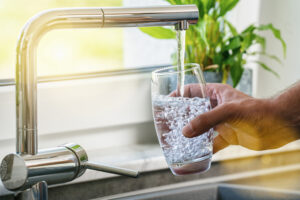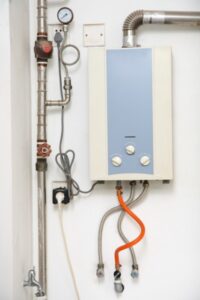How does a camera inspection work?
Call Us at (877) 959-3534 for Plumbing Service
A camera inspection is a process that uses a camera to examine the inside of something. The camera is inserted into a small opening and transmits an image to a monitor so that someone can see what is going on inside. This process is often used to inspect pipes, drains, and other small openings.
Camera inspections are important for plumbers because they allow us to see inside small spaces without having to do any demolition. This means that we can save time and money by avoiding unnecessary work. Camera inspections also allow us to assess the condition of pipes and drains and identify problems that need to be fixed.
What are the advantages of using a camera inspection ?
1.They are less expensive than many other types of inspection.
2.They are minimally invasive, meaning there is little to no damage done to the property being inspected.
3.They can be used in a wide variety of settings, including residential, commercial, and industrial properties.
4.They are quick and easy to set up, meaning that inspections can be conducted with minimal disruption to the property owner or occupants.
5.They allow for a clear and concise view of the interior of pipes, drains, and other small spaces.
6.They can be used to inspect both accessible and inaccessible areas.
7.They are safe for both inspectors and those being inspected.
8.They provide a permanent record of the inspection that can be referred to later.
9.They can be used in conjunction with other types of inspections, such as pipe cleaning or repair.
10.They are an environmentally friendly option, as they do not use any chemicals or other materials that could potentially harm the environment.
Call Us at (877) 959-3534 for Plumbing Service
How far can an inspection camera see?
Inspection cameras come in a variety of sizes and with different features, but most can see up to 30 meters (100 feet) into a pipe or other small space. Some inspection cameras even have built-in lights and recording devices so that they can capture images and videos of the interior of a pipe or drain.
How do I find out where my sewage pipes are?
If you are a homeowner, you can usually find your sewage pipes by looking at your property’s plat map. This is a map of your property that shows the location of all the features on your land, including buildings, trees, driveways, and sewer lines. If you cannot find your plat map, you can contact your local planning or building department for assistance. If you are a business owner or manager, you can ask your local sewer authority for a copy of the sewer system map for your area. This map will show the location of all the sewer lines in your area, including the main line that serves your property. Once you have located your sewer lines, you can then call a camera inspection company to have them conduct an inspection of your pipes. This will allow you to see the condition of your pipes and identify any problems that need to be fixed.
What are some common problems that can be found during a camera inspection?
Some common problems that can be found during a camera inspection include:
- Broken, cracked, or collapsed sewer lines
- Blockages in sewer lines
- Root intrusion into sewer lines
- Grease build-up in sewer lines
- Leaking joints in sewer lines
- Sagging or bellied sewer lines
- Settlement around sewer lines
- Corrosion in sewer lines
- Debris in sewer lines
- Insect infestation in sewer lines
In conclusion:
Camera inspections are an essential part of the plumbing process. They allow plumbers to assess the condition of pipes and drains without having to do any demolition. This saves time and money, and it also minimizes disruption for the property owner or occupants. Camera inspections can be used in a variety of settings, including residential, commercial, and industrial properties. They provide a clear view of the interior of pipes and drains, and they can be used to inspect both accessible and inaccessible areas. Camera inspection is a safe and environmentally friendly option that provides a permanent record of the inspection.




